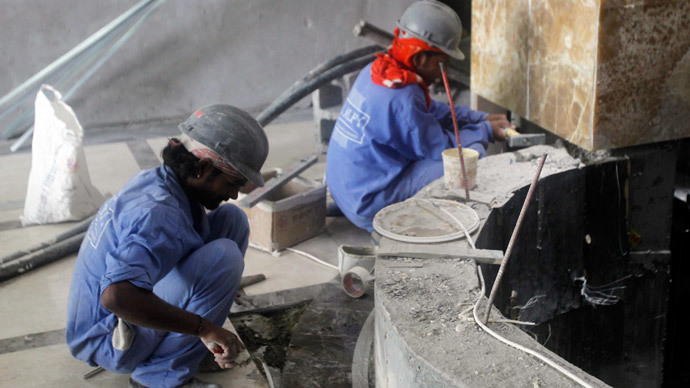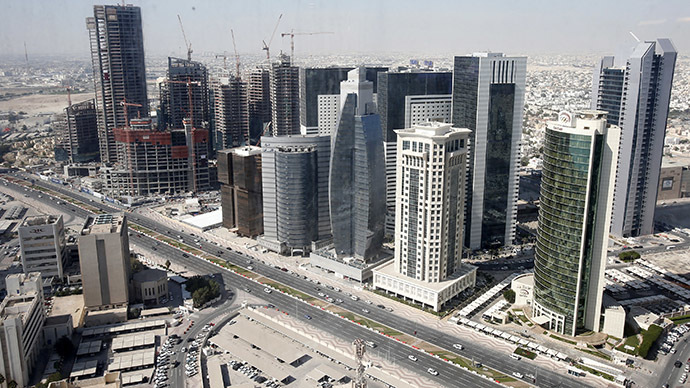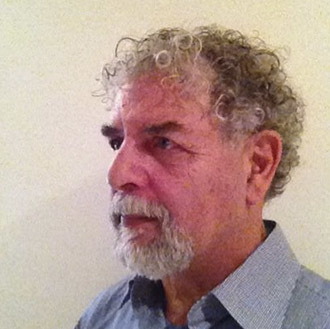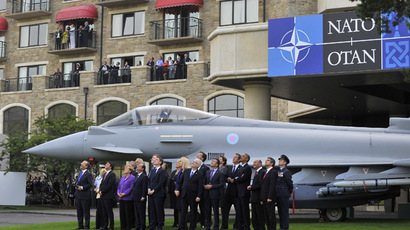See no evil, hear no evil? UK building firm linked to Qatari human rights violations

One of Britain’s largest construction firms has been linked to severely sub-standard working conditions for migrants in Qatar. Over 1,000 foreign workers perished in the Gulf state between 2012 and 2013, a government report shows.
The petro-rich Gulf state is investing over £200 billion in a construction frenzy in the run-up to the 2022 World Cup. Following a recent investigation into the matter, BBC Newsnight concluded that the building binge is benefitting many in the state – but not migrant workers.
Amid recent bribery allegations, Qatar’s World Cup plans have been tainted by a more unsettling reality than corruption alone. Hundreds of foreign workers hired to construct skyscrapers and stadiums in preparation for the global tournament have died in the Gulf state.
A report sponsored by the Qatari government found that migrants perished at building sites littered throughout Qatar. Most of them hailed from South Asia, many of them Nepalese. Swathes died from cardiac arrest, accidents, or falls in the workplace. Others took their own lives.
Amid mounting concern over the welfare of migrant workers in Qatar, questions have emerged regarding the obligations and responsibilities of global construction firms that win contracts in the country.

Following an in-depth probe into the conditions that foreign construction workers face there, BBC Newsnight uncovered damning testimonies about migrant workers’ poor pay, housing, and safety conditions.
Some of the workers forced to endure these conditions were employed by sub-contractors, which were in turn hired by Carillion – one of the UK’s most profitable construction companies.
Debt bondage
Imran, a 32-year-old Bangladeshi worker whose safety pass and helmet bore the distinctive Carillion logo, told Newsnight that he deeply regrets his decision to come to Qatar.
Although a recruitment agent promised him 1,500 Qatari riyal (£263) a month, he is left with a mere 650 (£114) Qatari riyal once his expenses for food and medical treatment are factored in. He must then allocate half of that meagre sum to the recruitment agency that sourced the position for him.
“I am supporting elderly parents, my wife and a child,” he told the BBC. “I can't send them the money they need...I don't want to stay here but I can't leave. The company have my passport.”
Describing a typical day, Imran said he wakes at 4 a.m., arrives at work at approximately 6 a.m., and continues to work for a further 11 hours. Reflecting on his accommodation, the Bangladeshi worker said it is overcrowded and ill-equipped.
“My room there isn't fit for humans – six of us share and there's no place even to sit and eat.”
Carillion told the BBC that it uses 50 different sub-contractors in the Gulf state, and that the firm employing Imran provides workers for one of those firms.

Reflecting on the unsavory nature of the 32-year-old's allegations, the company said it is “deeply concerned and surprised” and will conduct “an immediate review of these claims to establish the position and take appropriate action.”
The migrant workers’ camps are located between 10-20 miles from the center of Doha. The BBC reported that workers were seated on the floor eating at one particular camp, which is used by a sub-contractor that supplies labor to Carillion.
Complaints of delayed wages, poor pay, and sub-standard working conditions are rife there. Echoing Imran, one worker claims the sub-contractor he works for has his colleagues' passports, and that the workers are unable to access them.
However, a spokesperson for Carillion told the BBC that “health and safety is at the very heart of our business, and practice on site follows standards that we apply in the UK.”
He added that the firm “must abide by Qatari labor law in respect of wages, living conditions and employment rights,” and emphasized the company expects sub-contractors to “comply with Qatari law which prevents employers withholding workers’ passports.”
Drastic reform required

The Qatari report which documents the deaths of migrant workers in the Gulf state calls for serious reform of the nation's policy for dealing with migrant employees.
Human rights campaigners have denounced the measures currently in place as being similar to indentured servitude – a historical form of debt bondage common to 18th century North America.
Ray Jureidini, a leading professor of ethics and migration, has been employed by the Qatari government to offer recommendations for the reform of the state’s labor laws.
He told the BBC that the country's legislation requires an urgent overhaul, and warned that corruption and bribery by recruitment firms must be addressed.
Jureidini said that global construction firms profiting from Qatar’s pre-World Cup building boom also have a duty to take a proactive stance with respect to workers’ conditions.
“They don't ask about the men supplied to them,” he told the BBC.
“They feel they don't need to ask how the workers were recruited, whether they were trafficked, or whether they are caught in debt bondage or being exploited.”
Jureidini suggested that a “corporate veil” allows global firms to evade accountability for the fate of migrant workers, because the men are not officially documented on their books.














